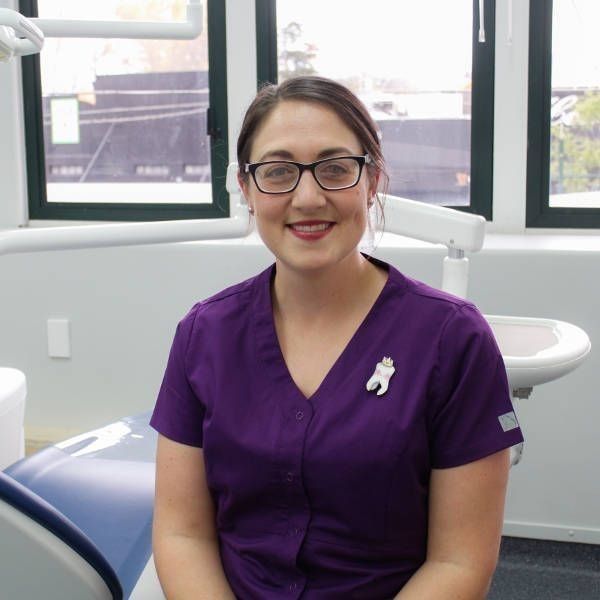FAQs

How to remove staining from teeth?
Many things can cause staining on the teeth. From black tea, herbal tea and green tea to coffee, iron supplements and red wine. These stains are removed with special instruments to scrape, debride, and polish away the stains without damaging the teeth. The teeth are then polished back to their natural shine. Read more
Is it painful to get teeth cleaned, is it supposed to hurt?
You should be comfortable when getting your teeth cleaned professionally. There are methods and technologies available to prevent or reduce pain. If gum disease is present, a scale can be uncomfortable for some, but this varies depending on the severity of the disease and the individuals mouth. If treatment is uncomfortable you need to let your hygienist know. We always endeavour to create a relaxing experience. There are steps that The Dental Hygienist can take to make sure you are comfortable. We always endeavour to create a relaxing pain-free experience. We offer anaesthetic whether topical or local to all patients.
How often do you need to get your teeth cleaned?
Anytime between 3 months to every year. Every person is different, every mouth is different so it depends on how healthy or unhealthy your mouth is and how well you are doing with your home care. If your gums are bleeding when brushing, flossing, eating, or spontaneously then it is important to see a dental hygienist as you likely have gum disease occurring.
What’s happens during an appointment?
Generally a scale and polish or hygiene appointment will include a complete examination of your gums, an oral cancer screen, and review of your personal home care plan. We also scale and clean away the plaque, tartar, and calculus in the mouth and remove any stains. Lastly the teeth are polished to restore their shine. Read more
Can teeth hurt after deep cleaning?
Your teeth should not hurt after a deep cleaning. A very few people may experience some sensitivity or tenderness afterwards but that should go away after a day or two. This mainly depends on what gum disease is occurring and how severe it is. If you are experiencing pain after a deep cleaning it is recommended that you call your dental hygienist who can offer the best advice for you personally.
Can tartar on teeth be removed?
Yes by trained professionals. Tartar or calculus is removed with special instrumentation and equipment. With a proper clean no tartar is left in the mouth. If there is tartar or calculus present this is likely causing gum disease, bad breath, and could also be affecting your systemic health. It is important to have the tartar removed from your teeth to avoid these adverse effects. Read more
How do you get rid of yellow teeth?
It may be a simple fix of seeing us for a scale and polish to have the plaque, tartar, and stains on the outside of your teeth removed or it’s possible that your teeth will need whitening with a bleaching product to restore their whiteness. Read more
What type of toothbrush works best? Manual or electric?
There is debate about which toothbrush is best. In our opinion an electric toothbrush used properly beats a manual toothbrush all day long. There are different mouths where a manual toothbrush is more suited but for the general public an electric toothbrush will give a better more effective clean.
Why it is important to floss?
Flossing gets all the plaque and bacteria from in-between the teeth. If you only brush and don’t floss then you are missing approximately 40% of the tooth surfaces in your mouth. Flossing is important for the health of your teeth and gums. If the plaque and bacteria is not removed from between your teeth then these areas are the perfect spots for decay and gum disease to start.
Why does my breath smell?
If you are experiencing halitosis or bad breath you could have a number of different conditions. Most commonly you will likely have plaque, tartar, and bacteria building up in the mouth causing gum disease. Then by-products of the bacteria and gum disease cause bad breath. Alternatively it could be a symptom of other health issues happening further down the digestive tract, or of lesions in the mouth. Read more
What is the difference between a dental hygienist and a dentist?
The main difference between a dentist and dental hygienist is a hygienist is specialised in scaling, cleaning, and polishing teeth where as a dentist has a broader range of skills to treat and restore teeth and gums. Dental hygienists and dentists are both qualified registered dental professionals. A dental hygienist specialises in scaling and polishing teeth, provides treatment and prevention for existing gum disease.
What is plaque?
Plaque is a colony of bacteria that adheres onto the teeth. It is soft and sticky and causes tooth decay and gum disease. It is essential to remove this soft plaque through brushing and flossing regularly to avoid decay and disease. If plaque is not cleaned regularly or adequately it hardens and turns into tartar.
What is tartar?
Tartar, also known as calculus, are hard calcified deposit that adhere strongly to the teeth. Tartar builds onto itself and can adhere to the tooth above and below the gumline. If not scaled off completely it will cause gum disease and decay. Tartar is very hard and can not come off with brushing or flossing, it requires a trained skilled dental professional to remove it without damaging the tooth surface or gums.

